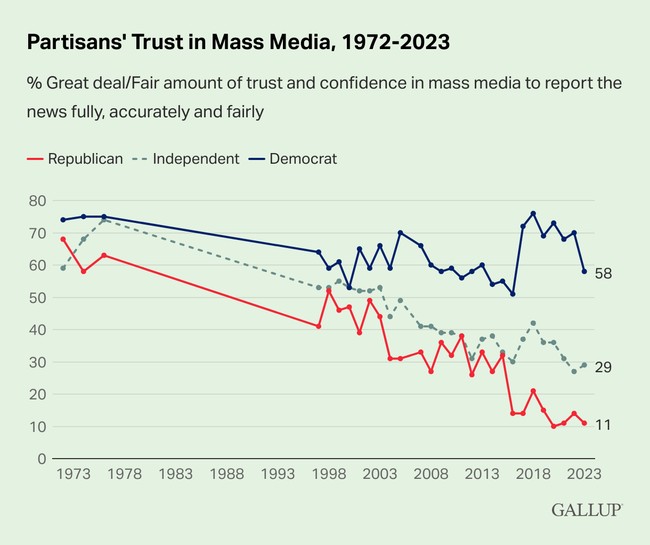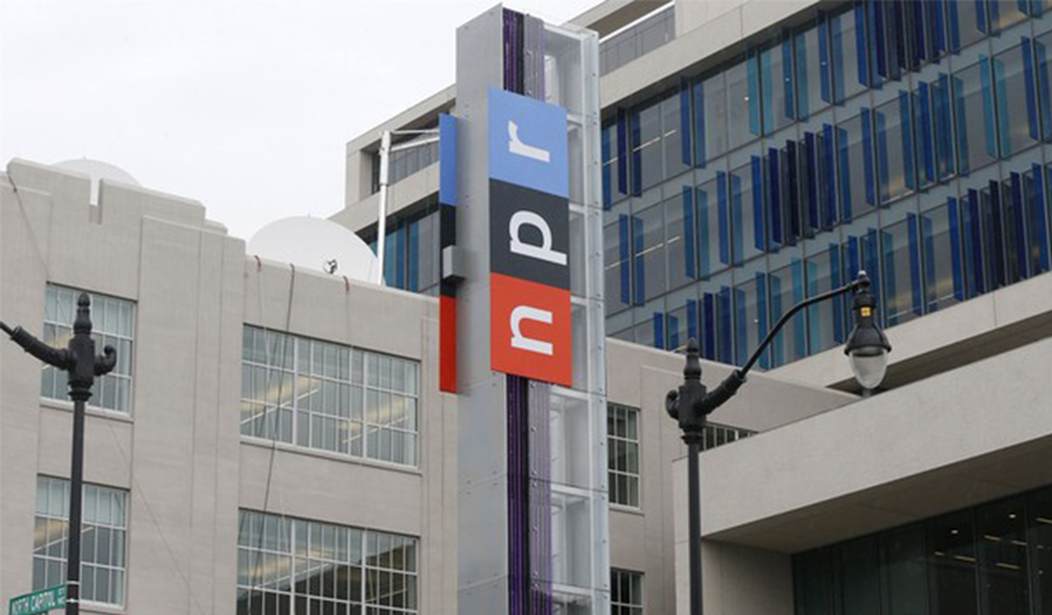"If you are conservative, you will read this and say, duh, it's always been this way," NPR veteran Uri Berliner writes. "But it hasn't." Perhaps not, but it's been that way for longer than Berliner wants to admit, too.
And it's not just NPR that Berliner dresses down in this detailed and damning mea culpa from inside the house, so to speak, at The Free Press. What Berliner writes about his own media organization pretty much applies to all American mainstream media outlets, and just as much as at NPR, if not more.
Berliner puts the beginning of the corruption at the election of Donald Trump, when NPR went all-in on Adam Schiff's McCarthyism – and failed to call it out when it collapsed:
Schiff, who was the top Democrat on the House Intelligence Committee, became NPR’s guiding hand, its ever-present muse. By my count, NPR hosts interviewed Schiff 25 times about Trump and Russia. During many of those conversations, Schiff alluded to purported evidence of collusion. The Schiff talking points became the drumbeat of NPR news reports.
But when the Mueller report found no credible evidence of collusion, NPR’s coverage was notably sparse. Russiagate quietly faded from our programming.
It is one thing to swing and miss on a major story. Unfortunately, it happens. You follow the wrong leads, you get misled by sources you trusted, you’re emotionally invested in a narrative, and bits of circumstantial evidence never add up. It’s bad to blow a big story.
What’s worse is to pretend it never happened, to move on with no mea culpas, no self-reflection. Especially when you expect high standards of transparency from public figures and institutions, but don’t practice those standards yourself. That’s what shatters trust and engenders cynicism about the media.
Indeed, but if that was the only instance, NPR wouldn't be losing as much of that credibility. Berliner adds immediately after this that "Russiagate was not NPR's only miscue," and goes on to list other journalistic disasters. There's the Hunter Biden laptop story, which NPR ostentatiously and publicly derided as a "pure distraction," only to end up with egg on its face a year and a half later. And once again, NPR chose to hide from accountability rather than face its biases and corrupt approach to political coverage.
And then Berliner goes into NPR's COVID coverage, which could best be described as Regime Radio. NPR insisted that the lab-leak origin theory had been "debunked" when it hadn't, and NPR refused to even consider the possibility even when the theory gained significant ground in scientific and even journalistic communities. Berliner misses some of the other Regime Radio coverage given to issues like the vaccines, masking, shutdowns (especially schools), and so on.
Needless to say, NPR was not All Things Considered during the pandemic. Its motto since Trump's election has been All Approved Things Considered.
And its listeners have noticed.
But Berliner is kidding himself if he thinks this began in 2016, either at NPR or anywhere else. Maybe Berliner should have listened more to conservatives before asserting that 2016 was the inflection point for his outlet, because we've been noticing the enforcement of the progressive party line there for years before Trump rode down the escalator. For instance, NPR fired Juan Williams in 2010 for admitting that seeing Muslims in traditional garb on planes made him "nervous," even though Williams was making a point against generalizations. Bernie Goldberg scored a bullseye on NPR's pretensions in an AOL column that has since disappeared, but I excerpted it at the time:
What makes this so crazy — and so sad — is that liberals are the open-minded ones, the ones who cherish the free exchange of ideas, the smart ones. And if you don’t believe me, just ask any liberal, who will be glad to tell you how smart and open-minded he or she is. But these are the kind of people who believe in “free speech” only as long as they agree with you.
And its scummy alliance with Schiff started before Trump won the election, too. John Sexton reported in May 2016 about how NPR lied about canceling an interview with a critic of Barack Obama's Iran deal, in part because of Schiff's influence on its editorial board:
Last week the AP revealed that National Public Radio had taken $100,000 in 2015 from the Ploughshares Fund, a group that White House adviser Ben Rhodes said was helpful in setting up a media “echo chamber” to pass the deal. NPR flatly denied that the donation had any impact on their coverage of the deal. ...
There was just one problem with this blanket denial from NPR. According to Rep. Mike Pompeo, a critic of the deal, NPR had canceled an interview with him even as it gave air time to Rep. Adam Schiff, a supporter of the deal. Once again, NPR denied it. A spokesperson told the AP it had no record of Pompeo’s requests to be featured on the air discussing the deal. That was it, cut and dry.
Only it wasn’t true. The Washington Free Beacon reports NPR has now reversed itself[.]
And that's just what pops up in a cursory search through only our own records. If we had a couple of days, imagine the picture this would paint.
Berliner is flat-out wrong about the timeline of overall media distrust, too. Gallup tracks this in its longitudinal polling, and its data shows that this collapse started much earlier. Or at least it did outside NPR's obvious pandering demo:

Note well that the big headline from the latest iteration of this poll in October 2023 was that media trust hit a new low since 2016 – among Democrats. For Republicans and independents, trust had collapsed around 2000 and has continued cratering ever since, as American media outlets dedicate themselves to promoting the progressive agenda. And that especially includes NPR's Regime Radio service.
It seems NPR missed that story, too. Maybe that should tell it something.
Addendum: Many of our readers have joined the fight as part of our VIP and VIP Gold membership, and they have been crucial to our operations as an independent platform and the ability to debate all of the issues honestly.
Join us in the fight. Become a HotAir VIP member today and use promo code FAKENEWS to receive a 50% discount on your membership.








Join the conversation as a VIP Member